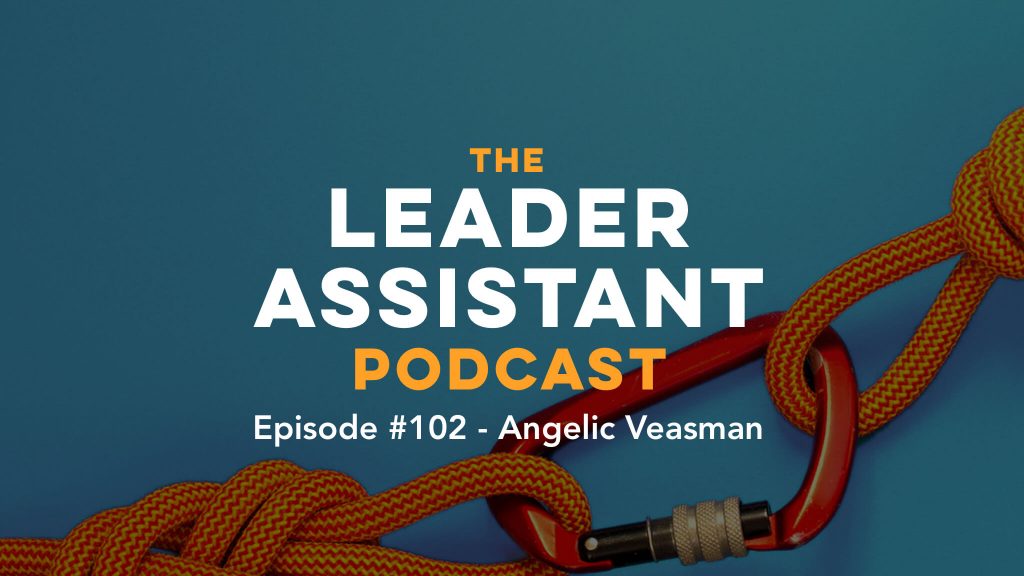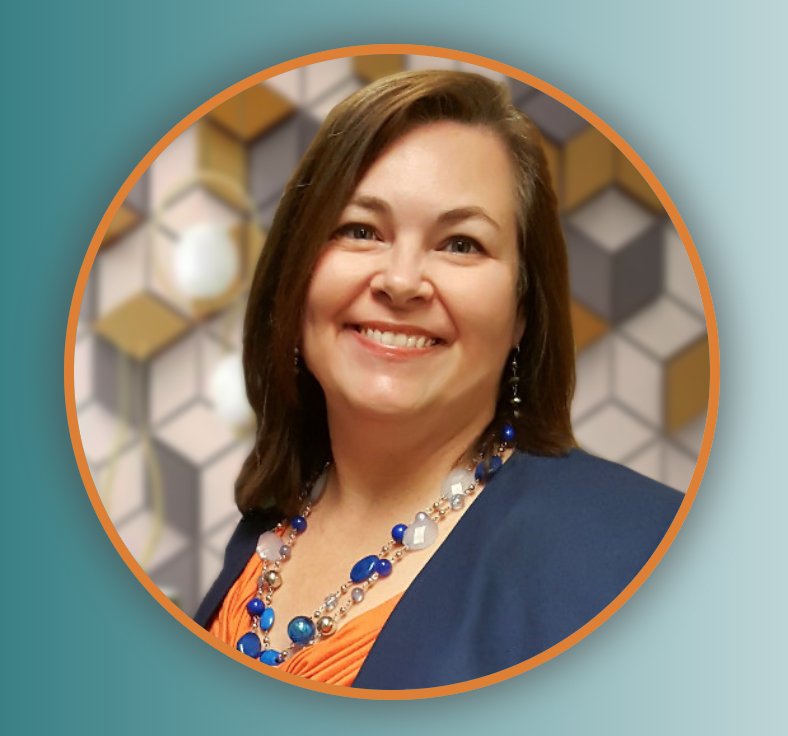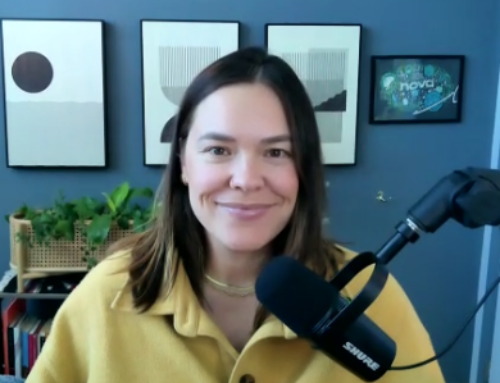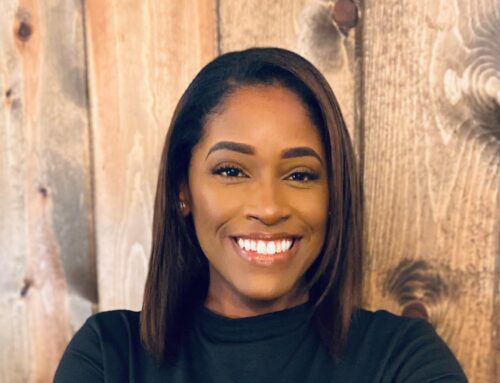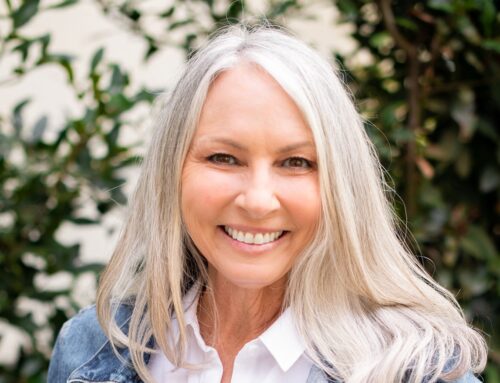Angelic Veasman has more than 23 years of experience in business operations and currently runs her own business supporting executives, coaches, and entrepreneurs.
In this episode, Angelic shares tips on managing email, how to be productive, becoming a virtual assistant, specializing as a VA, event planning, project management, and more!
LEADERSHIP QUOTE
This is our purpose: to make as meaningful as possible this life that has been bestowed upon us… to live in such a way that we may be proud of ourselves, to act in such a way that some part of us lives on.
– Oswald Spengler, German Philosopher
LEADER ASSISTANT LIVE EVENTS
Check out our constantly updated schedule of events for admins and assistants at LeaderAssistantLive.com!
THE LEADER ASSISTANT BOOK
Download the first 3 chapters of The Leader Assistant: Four Pillars of Game-Changing Assistant for FREE here or buy it on Amazon or Audible.
JOIN THE FREE COMMUNITY
Join the Leader Assistant Slack Community here, or the Facebook Group here for bonus content and to network with other assistants who are committed to becoming leaders!
CONNECT WITH ANGELIC
ABOUT ANGELIC
Following more than 23 years experience in business operations, Angelic started Lady Powerhouse Solutions for the values-driven Executives, Coaches, and Solopreneurs/Entrepreneurs struggling to handle all the details of running a business, while also striving to DO their business. Her company specializes in creating more time for profit-generating work for WOMEN ON FIRE by taking over time-consuming project and event management operations. Lady Powerhouse Solutions provides the support busy professionals need to run a successful business.
SUBSCRIBE
Subscribe to The Leader Assistant Podcast so you don’t miss new episodes!
You can find the show on Apple Podcasts, Spotify, Google Podcasts, Pandora, and Stitcher.
Join my email list here if you want to get an email when a new episode goes live.
LEAVE A REVIEW
If you’re enjoying the podcast, please take 2 minutes to rate and review the show on Apple Podcasts here. Each review helps me stay motivated to keep the show going!
—
EPISODE TRANSCRIPT
Angelic Veasman 0:00
I’m Angelic Veasman. Today’s leadership quote comes from German philosopher Oswald Spangler. This is our purpose to make as meaningful as possible this life that has been bestowed upon us to live in such a way that we may be proud of ourselves, and to act in such a way that some part of us was on.
Podcast Intro 0:23
The Leader Assistant Podcast exists to encourage and challenge assistants to become confident game changing leader assistants. Thank you for listening to The Leader Assistant Podcast. Here. Here’s your host, my dad.
Jeremy Burrows 0:41
Hey friends. Thanks for tuning in. Just wanted to give you a quick note to find the show notes for today’s episode at leaderassistant.com/102 Leaderassistant.com/102 To find the show notes and links to connect with today’s guest. I also wanted to invite you to check out my book if you haven’t already. It’s on Amazon Kindle ebook, you can get it on Barnes and Noble. You can get the audiobook on Audible or on Apple books. And of course, you can get the paperback on Amazon or Walmart or Barnes and Noble or your local bookstore should be able to order it as well. Amazon dot leader asst.com Or if you’re looking for the audible version, you can go to Audio dot leader assistant.com. Hope you can check it out. Let me know what you think. I hope you enjoyed today’s interview. Hey, everyone. Thanks for tuning in to The Leader Assistant Podcast. It’s your host Jeremy Burrows and today I’m speaking with Angelic Veasman. Angelic is CEO of Lady powerhouse, Angelic, how’s it going?
Angelic Veasman 1:51
I’m pretty good. How are you?
Jeremy Burrows 1:54
I’m doing all right. And where are you in the world?
Angelic Veasman 1:58
I am, let’s say about an hour and a half south of St. Louis, Missouri. Not quite in the Boot Hill, but close to it.
Jeremy Burrows 2:11
Awesome. I’m very excited to I’m pretty sure I’m 99% sure that this is my first interview with someone in the St. Louis area. So I’m very excited.
Angelic Veasman 2:23
Oh, thank you. Thank you for having me. It’s a pleasure. It’s an honor to be here. I’ve learned so much from your past class over the past year. And I’m really happy to be here today. So thank you.
Jeremy Burrows 2:37
Great. Well, let’s jump in. And let’s talk about your very first job. What was your very first job? And what did you learn in that role that you have today?
Angelic Veasman 2:45
Sure. So my very first job was doing singing telegrams in high school. And it was fun, but I think what I learned from that was to be flexible, and the ability to improvise. Right? So. And I think one of the other things, too, was learning to keep your composure, when maybe things don’t go as planned. Because, you know, if you don’t look like you made a mistake, they probably won’t know that you made a mistake or what have you. So it really it really taught me to think on my feet and to keep my composure, or stress.
Jeremy Burrows 3:31
Awesome. So when did you become an assistant, and why?
Angelic Veasman 3:38
So I became an assistant, pretty much straight out of high school, and more out of necessity. But the middle of my high school, you know, years, my life kind of turned up that upside down, my mom got cancer. And so things didn’t go quite as planned. I had plans to go to college, I had plans to get married out of high school, but then my mom got cancer and I had to drop out and take care of her. And then afterwards, I just picked right back up and went back to high school and married at this point. So I was seen as an emancipated minor, and I ended up graduating about seven months pregnant. So, you know, I started having children and having to provide for them. So I just just started working. And I had taken typing in high school, like so many women and girls, and it just was one of the skills that I had. So that’s what I did.
Jeremy Burrows 4:43
Awesome. So how many kids do you have?
Angelic Veasman 4:46
I have two grown daughters, and we have six grandchildren between the two of them.
Jeremy Burrows 4:52
Wow. So are any of them in the administrative profession?
Angelic Veasman 4:58
No, they’re not It’s neither one of them really are. But they’re, but they still have that. Very, they’re very organized. And a little analytical and overthinker is kind of like I tend to be what serves me pretty darn well on my job.
Jeremy Burrows 5:20
Yeah, definitely, I got my detail organization, OCD news from my mom. So have her to thank for my awesome EA skills. So what’s the funniest or most interesting thing to ever happen to you as an assistant.
Angelic Veasman 5:39
So I have to go with with the most interesting because funny things happen to me all the time. And it’s usually something goofy that I’m doing. But the most interesting thing that ever happened to me was I was a secretary in a large healthcare system in St. Louis. And every year they do a conference for the employees, kind of a, you know, part, get away parts State of the Union kind of thing. And, you know, shortly after the American Idol thing came out, they decided to kind of get some talent from within the company. And so the way they did that was they had internal, like American Idol competitions. You know, my boss at the time knew that I sang. And he says, hey, I want you to just sing a song for me, because I did it, like a karaoke kind of setup. And I said, Sure, I’d love to sing a song for you. No problem. But in order to do that, I had to register for the contest, I had to get a number and everything. I was like, Sure, fine, whatever. But I’m not interested. Because I, you know, I was just at a place in my life where I was like, I don’t need to be on the stage again, I don’t need to perform. Again, that’s my past life, right. And so then a couple weeks later, HR shows up with my golden ticket, and I’ve won. And now I’m part of a, quote unquote, official, you know, choir, and I tell you what, I absolutely loved it and ended up performing on, you know, the largest stage I’ve ever performed on and had the most fun I’ve ever had in my performing life. And ended up singing. In front of 1000s of people, we were at the to Hill, which holds like 1500 people or something, and we would almost pack it out several days in a row. And we would do two, three performances a day. And we did that for several years. And it was, it was a complete blast, and I was paid for it, which was just icing on the cake.
Jeremy Burrows 7:54
It was definitely interesting. I don’t I don’t know that I’ve heard of the internal company wide American Idol competition.
Angelic Veasman 8:01
Yeah, yeah, we have some really, really talented people in the organization. And it was nice for them to be able to show that, you know, you’re you can be a nurse and you can be a flutist or violinist, you know, that kind of thing.
Jeremy Burrows 8:19
So let’s, let’s talk a little bit about a couple of practical tips for EAS. Let’s start with managing an executives email inbox, any tips?
Angelic Veasman 8:34
So, you know, I think that it has to start with, you know, the parameters that you and your executive set, right? And how long have you been supporting that person, if you’re new, if you know, this is a new thing, Hey, I can’t do this anymore. And they just kind of hand it over to you. And you already have a feel for that executive. But either way, you’ve got to have a system. And so if you have a system for your own email and how you manage it, that should translate, right? My you know, I always tried to do the Inbox Zero method where you know, really, you’re only looking at email one time maximum of two. If you can take care of it within a minute or two, then do it knock it out. If you can’t, my trick was to set it. And you know, back when I was in corporate I used Outlook. So I would set a deadline and then an alarm would go off to remind me and that deadline could be during my block in the day near the end of the day at three or four o’clock when I allotted an hour to do email or it could be the next day when I know I’ve already met with my you know exactly where for weekly one on one and I can get those questions answered and then respond to the email. So it’s just you know, whatever system you have in place You know, did that way and then some of the other things is, you know, don’t, don’t keep typing, typing the same thing over and over again. So I used to do medical transcription. So, you know, if I was always typing that same phrase over again, you know, create a template, create a quick part, or whatever it is, whatever you’re using G Suite, Outlook, whatever, create those, you know, shortcuts for yourself, and create those rules or filters or whatever, again, depending on, you know, the application that you’re using, to help you filter or file away those, those emails, you know, if an, you know, an email is gonna come in, and it’s not urgent, and it’s like a, it’s a weekly newsletter that, you know, he wants to read, and he always wants you to print it off. You can have those filter into, you know, a folder, and then, you know, once a week, print them off for him, or her. That kind of thing. That’s probably about it.
Jeremy Burrows 11:05
Oh, that’s great. Love it. What about just general productivity hacks, any thing you’d like to do to get stuff done?
Angelic Veasman 11:18
So for me, it’s, it’s a really, everything goes on my calendar. As a reminder, or as a, you know, as a block of time, I really block things out. You know, like, like, 930, I’m going to check your email, and then on 930 hits, I stopped no matter where I’m at. And I move on to the next thing, and kind of like, what is it called Pomodoro method where you set that timer for 25 minutes, or 55 minutes, whatever it is, depending on the project. And because I work really well with deadlines, in fact, I kinda need them to be most productive. So that’s what I do is I just use that calendar to my advantage. I do color code, but I don’t go crazy with it, I might maybe have three or four different colors on the calendar to help me just, you know, quickly recognize what something is and when to do that to have your own. Because I am self employed, and I work from home, I really have to have a schedule for myself. And that’s what really keeps me most productive. And I noticed if I get off the if I fall off to the train, my whole day tends to get derailed if I if I don’t try and really stick to that habit. That ritual.
Jeremy Burrows 12:39
Yeah. So how would you tell someone who’s considering becoming an assistant?
Angelic Veasman 12:53
Please love doing that. I’ve worked with people, I have met people who absolutely hate what they do, and they’re miserable. Why don’t you do something you don’t enjoy. And plus, you’re probably going to make your coworkers miserable, too. So please, if you’re going to be an assistant, try to make sure that you really enjoy it the most part, I mean, you know, you’re not gonna live everything 100% of the time, right? But for the most part, overall, please like what you do. You’ll be happy your coworkers will be happy. And yeah, that’s the I think that’s my biggest advice.
Jeremy Burrows 13:41
So how about people that are assistants now? What should they stop doing and what should they start doing?
Angelic Veasman 13:52
Well, it’s kind of a two edged sword so stop devaluing your worth stop saying yes when you’re already topped out without conditions without saying I would be happy to do that. What am I taking off my plate to allow me bandwidth to do that to the best of my ability? Just learning to self respect you know? So so that’s the stop that’s the stop is stop devaluing stop saying yes, when you really need to say no, or want to you just want to say no, you don’t want that job. People so often I hear out you’re so good at this. You would knock this out no time and the reason they knock it out no times because they don’t like doing it. They just want to get it over what? So and then the things I’ll say, Let me think about that to start doing. You know, valuing yourself, respecting yourself because this training yourself in such a way that, you know, when people approach you, you can kind of tell when you approach people that first impression, their body language, those nonverbal cues. If you don’t already know what those are about yourself, learn, figure that out. And just be self aware. And you know, start speaking up, that’s a big one. Because, you know, I don’t know why it’s so hard for us to say, Oh, I, you know, I did a really good job on that. And start owning the things that you do, right? And owning the things that maybe you didn’t, and grow from those things. And don’t be afraid to be uncomfortable. Growth doesn’t come in when we’re comfortable. And if we want to grow and learn, and evolve, we need to be a little uncomfortable, maybe a lot uncomfortable. More of the time, I always say that start start being getting uncomfortable with being uncomfortable.
Jeremy Burrows 16:19
Perfect. So what would you tell an executive assistant, who wants to become a virtual or remote assistant?
Angelic Veasman 16:35
So I listen to your podcast hear me and I know that you asked this question quite a bit, at least you have recently, it seems like, and so much of the time people say just do it. And I have to agree with that. I mean, that sounds so simple. And I’m not trying to be cliche, but just do it. I’m trying to think of the reasons you wouldn’t want to do it. If, if you’re the type of person that isn’t, isn’t salt, very self motivated, or self directed, or self starter. Being a virtual assistant or a remote assistant, can be challenging, if you are one of those people that needs to have a lot of outward guidance. Like if you aren’t able to keep yourself on a schedule, like I mentioned before, you can really have to have that. I was on quite a learning curve when I started doing this. And it and I learned very quickly, what what days I, you know, got derailed. And I practiced something. And I think you mentioned this on the podcast or something. But I’ve heard it from other sources as well. But you’ve you’ve reinforced it in, in your podcasts and your blogs and things is that do a weekly review or a monthly review. So look back at your week and look at what went well, what didn’t and how to make positive changes. What can I do better next week? What can I stop doing? What can I start doing? And I think that is another thing that’s just, you know, kind of I don’t want to say mandatory but really important. A characteristic that would be really important for somebody who wanted to be a VA, but overall go for it. Absolutely go for it. Who doesn’t want that autonomy? Right? Right.
Jeremy Burrows 18:46
So what about should should virtual remote assistance? Should they specialize? Say for example, I’m a travel virtual assistant or I’m a graphic designer virtual assistant or should they be more of a jack or Jane of all trades?
Angelic Veasman 19:02
Absolutely specialized. Absolutely. Now it’s it’s difficult in the beginning to know what to specialize in. And I recognize that and a lot of times it’s trial and error. Don’t be afraid to change your niche or to specialize in something different. You might start saying oh yeah, I love travel and then you and then that’s all you do. And you’re like I’m serious second travel. So don’t be afraid to change your specialization or as the hot word is now the pivot. So but being a jack of all trades is really difficult because you know what first comes to mind is the jack of all trades, master of none. So what do you what do you really what are you really an expert in? So being a specializing in something allows you to charge a higher rate of pay because you are specialized there, for instance of one example is, there aren’t a lot of people out there who know Kajabi, there are more now than there used to be. The Kajabi is in high demand, check it out. So you feel like it, you know, and maybe something that you would really be great app. And you can specialize in that niche, or maybe it’s Trello. Or maybe it’s, you know, a sauna, or whatever it is. But definitely specializing is the way to go. And I think the other side of that is that it’s something that you enjoy, again, back to, like what you do, don’t make yourself and other people miserable, like what you do. And if you find that after a while, you don’t love it as much as you used to. Okay, you can change, we can evolve, we can, it’s okay.
Jeremy Burrows 20:53
So tell us a little bit about your switch and your transition. And assuming you were always a remote assistant, correct, you’re in office and then transition to some point.
Angelic Veasman 21:04
Correct. I spent the majority of my career in a corporation or organization of some kind, I did start out in a in a you know, a doctor’s office, it’s a specialist office. But the majority of my career was spent spent in a large organization or a large corporation of some kind. And that transition, as I mentioned earlier, it was a steep learning curve, because where you think you’ll love all this freedom and lack of structure and the ability to, you know, go to work when you want and work when you you know, when you’re at your your energy is at its highest, and not when it’s at its lowest, or to be able to choose which tasks you’re doing during those times. That’s all great. It really is, it really is great. But again, you have to be a self starter, and recognize your patterns, and be able to adjust to be most successful doing that. And so my transition, like I said, I made so many mistakes in the beginning. But I’m a quick learner, I will give myself that. And I always have been I’ve always been a very fast learner, especially when it came to tech. And so I just, you know, it’s okay, I, you know, I’m okay with making mistakes, and just evolve and change.
Jeremy Burrows 22:38
Nice. So you’re, you specialize currently in events, like event planning and project management? Primarily, right?
Angelic Veasman 22:51
Yes. So project management is a big umbrella though. So
Jeremy Burrows 22:56
right, True. True. A lot of different things can be managed a lot of different projects. So let’s talk about events real quick. First, what are your top tips for planning and running events?
Angelic Veasman 23:11
Whether it’s a live event or a virtual events, and we know virtual events are really ramping up as of late. But so the first thing you have to know, my top tip is, number one, you got to know why you’re doing the event. So what’s your goal? Right? What’s your endgame? Are you wanting to just, you know, and again, events don’t have to be huge, either. They can just be like a local business doing an open house. So it doesn’t need to be huge. But what’s the reason you’re doing it? Are you just wanting to get a community together? So they can feel good about your brand? Or are you just trying to create revenue? Are you wanting to offer training or to be able to sell your products or service to a larger audience, whatever your y is, know what that is, and to start planning early, and if you think you’re planning early enough, you’re not so plan on planning earlier than that, because you can’t start planning too soon. I mean, you’re you’re more likely to not plan soon enough than you are to plan too far ahead in advance, especially live events, virtual events, not so much, but live events, especially because there’s just a lot more physical logistics going on there. And then always have a plan B always have a backup plan, man, because all kinds of stuffs gonna happen and go wrong. It’s, you know, just the nature of the beast, whether it’s a live event, but again, especially live events. I think, though, even with virtual events, you’ve got a lot of technology stuff, right? How many of us have attended or, you know, been to a meeting where there’s somebody calling in or you know, conferencing in and they can’t get in Know, the connection won’t work or the connection is bad, whatever. So always have a plan B, meaning just, you know, maybe even a Plan C, you know, like a plan B for your plan B, never bad idea to have a backup plan, and then you got to have a budget, and you got to stick to it. Especially if you’re doing this for hire, you’re not just doing it for yourself, if you’re given a budget, or they, you know, for if it’s a first time kind of thing, really do your research and know what your budget for that size or scope or whatever type of event, what it is. And, you know, if you’re selling tickets, always go, like, plan pessimistically versus, you know, optimistically. It’s great to oversell and sell more tickets than you think and have more money at the end of the budget. than it is to way undersell the number of tickets you have and not have enough money to pay your vendors or your speakers or what have you. So I think that’s the last thing is just to have a good, have a good budget, do your research and, and stick as closely to that as you possibly can.
Jeremy Burrows 26:20
Nice. So what about just general project management best practices? Couple things you want to share?
Angelic Veasman 26:28
Sir, yeah, you know, you’ve got to have a system for any kind of project, whether it’s a and my projects, I’ll tell you, my projects tend to fall into you know, I work with a lot of our so people who are solopreneurs, too, and so they want to revise their website, or they want to launch an online course, or they need help with their marketing, you know, their social media management. That’s the kind of projects that I tend to fall into not fall, but choose because another great thing shameless plug about being a VA, and being a remote worker is you do get to pick what you you know, your clients, you know, if you have a chemistry call with somebody, you decide, ah, he signed it, you know, he kind of sounded kind of squirrely, I’m not really sure about that guy, you can tell them no. But for project management, you you have to have a system, whether it’s a spreadsheet, you know, and it’s an Excel spreadsheet, or if you’re using a CRM, or if you’re using a formal project management app, or software program, or whatever it is, or Hybrid Hybrid have more than one or two systems. And so you have to have a system, whatever works for you. And then you have to remember that now, and the reason I say this is because I have fallen into this so many times where you’re supposed to be managing the project delegating to team members. And that doesn’t mean that you’re necessarily a team member yourself, but don’t get stuck trying to to the majority of the tasks yourself. That’s not management, that’s micromanagement. So that would be a second tip. And then, you know, having some kind of measurements in in mind, whether you’re using KPIs or smart goals, or, you know, some, something like that, you know, recently you had somebody on that talked about OKRs, and embryos and things like that. So just to having something that is measurable and knowing for instance, if you know you do have you know, an objective and key result, and it’s a three month project, you’re not going to visit that OKR quarterly, you’re going to visit it monthly, I think about it kind of like a pregnancy, which is like this nine month long project right. And so at the beginning of the pregnancy, you are seeing that OB GYN once a month until you get closer to that last trimester and then you start going in every two weeks and then you start going in every week. So it’s it’s it’s a project is kind of like you deliver a baby, you’re delivering a product or service typically. And so just to keep those kinds of measurements in mind.
Jeremy Burrows 29:41
That’s an interesting analogy. I’ve never ever heard it described that way but it’s very clear.
Angelic Veasman 29:45
It’s it’s from working with a in healthcare and working with the maternity service time for many year. Yes.
Jeremy Burrows 29:54
Awesome. So if you could snap your fingers and instantly give all assistance work something, what would it be
Angelic Veasman 30:03
respect from others and respect for themselves. I think that’s one of the things that we struggle with, in that I hear, and that I see. And that I experienced myself was feeling like we just weren’t respected or that we weren’t valued. If I could snap my fingers and give every single assistant out there, the level of respect and value that they actually deserve. And some of them, it may not be very much, you know, be honest. But some of the most, the majority, I have to say, are just so undervalued, and there’s just a lack of just really value there. If I could snap my fingers, take anything away or give anything that would be
Jeremy Burrows 30:53
what makes an assistant, a leader?
Angelic Veasman 31:01
So, again, I think it comes back to attitude and mindset, you can teach any one skill, you know, there’s, there’s so many resources out there and and out on the interwebs. You know, there’s Udemy, there’s Coursera, you can go online and learn anything. But you can’t teach attitude very much. Most people come into a position with an attitude or mindset. And I think that’s what makes the difference. Someone who has an a can do attitude, a problem solver attitude, and their work beside attitude. And mindset. I think that’s what makes them a leader.
Jeremy Burrows 31:47
I agree. Love it. So Angelique, where can we find you online and tell us a little bit about your, your company and what you’re doing and how we can support you.
Speaker 1 31:58
Awesome. So I’m at Ladypowerhouse.com, you can find me on social media on LinkedIn, Facebook, Pinterest, and this new thing going around called Alignable. And, you know, you can you can support me by reaching out, I would, I’d love to connect with people. I do virtual coffee is all the time I do in real life coffees, too. But, you know, it’s just so much easier when you’re on LinkedIn or whatever, and you see someone and you see something that piques your interest. And I don’t know about you, but I get these a lot. Oh, tell me more about your blah, blah, blah, or whatever. I really like to flip those around and say, Hey, can we set up a virtual coffee? Don’t don’t sell anything, don’t, you know, position yourself? Don’t you know? Just get to know them. Just really get to know them. And it build relationships. That’s what I’m that’s what I’m in the business of doing. And I think a lot of assistance that that is our, our secret weapon, right? The relationships that we have with people that are bad. And so yeah, hit me up on LinkedIn, or Facebook. And let’s have coffee.
Jeremy Burrows 33:20
Awesome. Yeah. You think I included a quote from you about relationships in my new book, so excited to share that? Yeah, we’ll put all those links in the show notes so people can find you easily. Angelic, thanks so much for taking time out of your evening to chat with us and share your tips and little bit of your story. And yeah, we’ll look forward to seeing you. Seeing you soon and staying in touch.
Speaker 1 33:49
Absolutely. Thanks again, Jeremy. You have a great night.
Speaker 2 34:01
Please review on Apple podcasts. Goburrows.com

